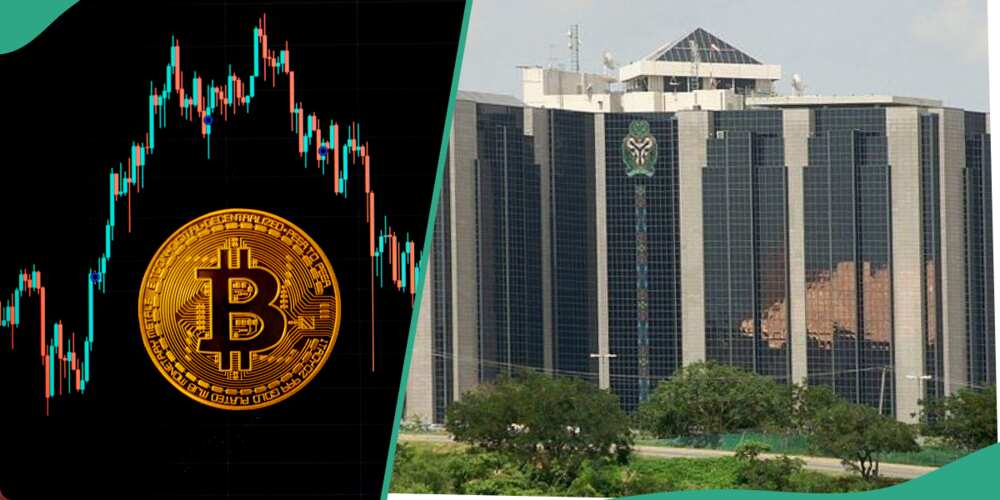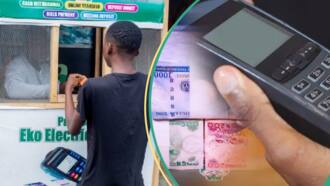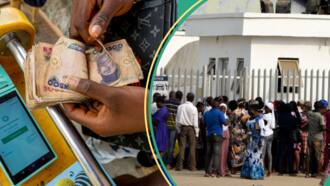[ad_1]
- The CBN has finally lifts ban on cryptocurrency transactions in Nigeria’s financial system
- The apex back have also introduces new guidelines to financial institutions for crypto transactions
- The popular cryptocurrencies in Nigeria include Bitcoin, Ethereum, doge coin and also dash and ripple
Legit.ng journalist, Dave Ibemere has over a decade of experience covering Tech, Energy, Stocks, Investments, and Economy.
The Central Bank of Nigeria has lifted its restrictions on cryptocurrency transactions in commercial banks.
This is according to a circular dated December 22, 2023with reference number FPR/DIR/PUB/CIR/002/003 and signed by Haruna Mustafa the apex bank’s Director, Financial Policy and Regulation Department.

Photo credit: CBN
Source: Getty Images
The statement titled ‘Circular to all Banks and other Financial Institutions Guidelines on Operations of Bank Accounts for Virtual Assets Service Providers (VASPS).’ also introduced stringent customer KYC and anti-money laundering checks.

Read also
Reps tell POS operators to stop selling naira notes nationwide, give reasons
PAY ATTENTION: Сheck out news that is picked exactly for YOU ➡️ find the “Recommended for you” block on the home page and enjoy!
CBN lifts ban of cryptocurrency
The CBN banned banks from crypto-related transactions in 2021, citing money laundering and terrorism financing concerns.
The regulator has now reversed that ban explaining that current trends globally have shown the need for crypto regulation instead of total ban, Punch reports.
The circular reads:
“The CBN, in February 2021 issued a circular restricting banks and other financial institutions from operating accounts for cryptocurrency service providers in view of the money laundering and terrorism financing (ML/TF) risks and vulnerabilities inherent in their operations as well as the absence of regulations and consumer protection measures.
“However, current trends globally have shown that there is a need to regulate the activities of virtual assets service providers (VASPs) which include cryptocurrencies and crypto assets. Following this development, the Financial Action Task Force (FATF) in 2018 also updated its Recommendation 15 to require VASPS to be regulated to prevent misuse of virtual assets for ML/TF/PF.

Read also
Senior bank workers give reasons for cash scarcity as POS operators set new withdrawal charges
“Furthermore, Section 30 of the Money Laundering (Prevention and Prohibition) Act, 2022 recognises VASPs as part of the definition of a financial institution.
“In addition, the Securities and Exchange Commission in May 2022 issued Rules on Issuance, Offering and Custody of Digital Assets and VASPs to provide a regulatory framework for their operations in Nigeria.
“In view of the foregoing, the CBN hereby issues this guideline to provide guidance to financial institutions under its regulatory purview in respect of their banking relationship with VASPs in Nigeria. “
CBN changes on cryptocurrency
Based on the new guidelines banks must obtain the bank verification number (BVN) of all directors and owners of crypto businesses that use their services.
The rules also mandate cryptocurrency companies to secure a license from the country’s capital markets regulator, the Securities Exchange Commission (SEC). E
Earlier in May 2022, the Security Exchange Commission issued rules on offering and collecting digital assets.

Read also
FG sends message to Zenith, Access, others over charges on FX transactions on customers’ accounts
Per the SEC rules, virtual assets service providers (VASPs) such as crypto exchanges must have at least N500 million ($553,000) in capital and be registered with the CAC.
Nigeria displaced as largest Bitcoin trading nation
Ealier Legit.ng reported that Nigeria has lost its position as a top crypto trading trading country in the world
The report shows that Brazil now ranks second on the list after El Salvador, with Nigeria trailing in the third place.
Brazil’s crypto adoption is spurred by one of its biggest banks announcing the acceptance of Bitcoin.
Source: Legit.ng
[ad_2]
Source link
